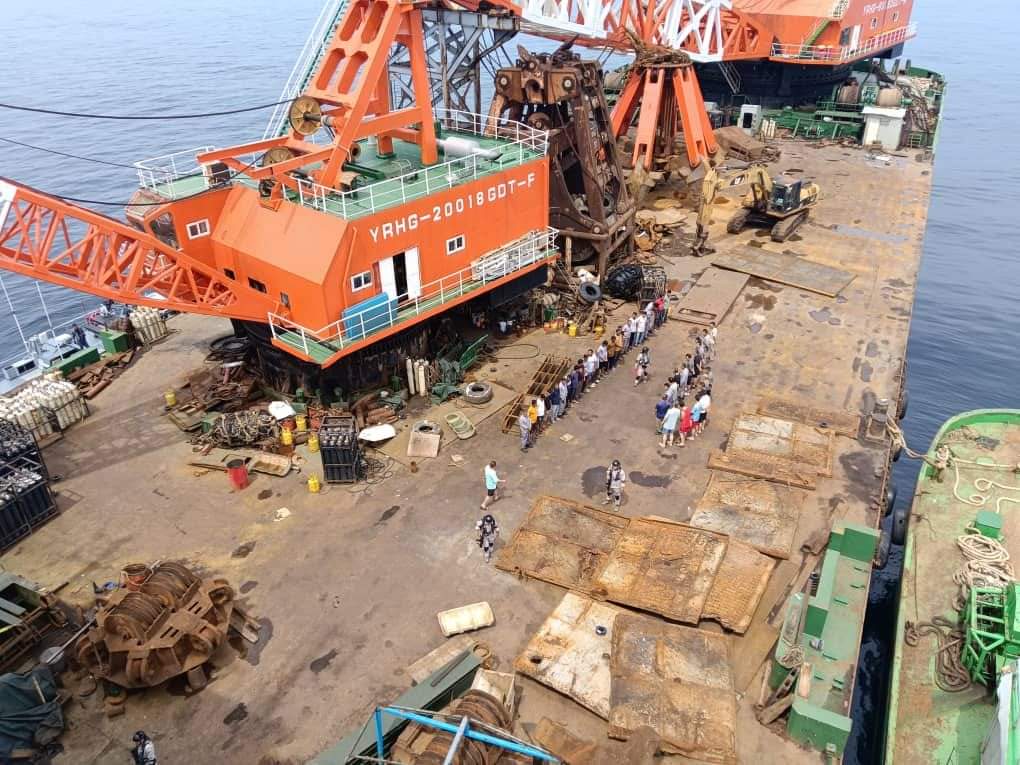World
Chinese Ship Suspected of Raiding World War II Wrecks Detained – USNI News

The Chinese dredger suspected of plundering two World War II Royal Navy shipwrecks last year has been detained by Malaysian maritime authorities.
MV Chuan Hong 68 and the entire crew is being held for paperwork violations including port clearances and having 60 unregistered LPG containers aboard and not illegal scavenging, according to a report in Maritime Executive.
But the larger question being raised by Southeast Asia news media and investigated by local authorities is how a ship like Chuan Hong 68 with its “bad reputation” that goes back years even be allowed to return to Malaysian waters.
Kuala Lampur’s New Straits Times reported Malaysian investigators are looking into why and by what means Chuan Hong 68 was issued permits to carry out salvage operations on MV Armada in February and a wreck identified as “Maritime Fidelity” in September last year, both off Johor.
The dredger’s suspected plundering of the two warships for its steel, aluminum and brass fittings took place in May 2023. Since these metals were produced before nuclear weapons’ use and testing they are considered of great value in highly specialized manufacturing.
During the May 2023 boarding of the Chuan Hong 68, inspectors found rusting artillery shells and other scrap that likely came from the two warships. Shortly after that boarding, Malaysian authorities confiscated two cannons, more ordnance and other objects in a junkyard that also likely came from sunken warships.

The newspaper’s account said both “notices to mariners” that salvage operations were being conducted had been deleted from the country’s maritime posting website. These notices are also guides to authorities to what vessels are operating in their territorial waters.
Local police, Malaysia’s National Heritage Department and its Maritime Enforcement Agency and Marine Department are also participating in the investigation as to how the permits were granted and their purging from the website.
In May last year before the second salvaging operations began, Malaysian authorities detained Chuan Hong 68 in the same waters for allegedly crushing and removing the wreckage of the Royal Navy battleship HMS Prince of Wales and battlecruiser HMS Repulse, USNI News reported.
Both were sunk by Japanese bombers during the invasion of the Malay Peninsula in December 1941, days after the attack on Pearl Harbor.
USNI News’ account noted the illegal salvage operation in Malaysia showed how vulnerable historic heritage sites are to thieves intent on plundering war graves, the director general of the Museum of the Royal Navy said in a statement.
The Royal Navy termed the dredging of the historic wreckage site “disgraceful.” Eight-hundred forty crew members lost their lives in the attack carried out by Japanese bombers.
USNI News reported six years ago that the U.K. Ministry of Defense was so concerned over the illegal dredging of wreckage sites, scavenging and looting that it dispatched a task force of survey vessels to the region to investigate the wrecks’ status. The ministry said then it would also monitor the water by satellite to keep track of activity near the sites.
South East Asian news media are reporting this week Chuan Hong 68 is also suspected of illegal shipwreck salvaging of Dutch warships in Indonesia in the Java Sea, as well as Singapore, Cambodia and Vietnam.
Malaysian authorities have not released an update on the case over the course of the intervening 12 months since the suspected scavenging of the two Royal Navy ships. The New Stairs Times also reported Chuan Hong 68 has repeatedly returned to the same operating area northeast of the Singapore Strait, often disappearing from the marine Automatic Identification System for weeks at a time.










